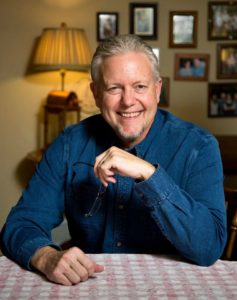Labeling people by what you think they fear . . .

. . . is nothing more than labeling people.
Saying someone is “-phobic” is an attempt to stifle conversation: watch our Truth in Two(full text below).

Subscribe to MarkEckel.com (here). Find the MarkEckel.com YouTube Channel (here). Mark is President of The Comenius Institute (website). Dr. Eckel spends time with Christian young people in public university (1 minute video), teaching at Indiana University Purdue University at Indianapolis, and interprets culture from a Christian vantage point (1 minute video). Consider becoming a Comenius patron (here).
Picture Credit: Luke Renoe, hassan-pasha-7SjEuEF06Zw-unsplash, etienne-girardet-NJ7_RKmfsXw-unsplash
FULL TEXT
We are told not to live in fear. But we implant the suffix phobic to implant fear that is not there. Let me explain.
Sometimes a person in our culture is labeled transphobic, homophobic, or Islamophobic. Words such as these label the person not the person’s belief. Saying that I “fear” people whose identity, sexuality, ethnicity, or nationality differs from mine is absurd. To call someone phobic is as bad as name calling on an elementary school playground. The intention is to label someone as fearful so that they can be excluded and then dismissed from conversation. Worse, those who are told they are phobic lose their reputations and economic stability. See the link in this Truth in Two to see what has happened to “cancelled” people. Disagreement or even questioning is cause for immediate censure. Words like racist, sexist, classicist, or elitist are thrown about so as to discredit, to bring a person into disrepute.
Labeling someone as phobic does nothing more than separate people into adversaries. Labeling someone as phobic suggests the one doing the labeling is in need of an enemy, someone to be against. As long as you agree with the non-phobic group you are accepted and referred to as an ally.
One of the ways you create phobic people is to portray them as vile in movies and TV series. If you are told again and again that men, fathers, America, U.S. soldiers, priests, and pastors are bad, you begin to see them as a villain. Take that a step further, and the institutions of family, country, and religion are brought into question. Calling people phobic does nothing more than alienate people from each other.
And I will say it again. I am not transphobic, homophobic, or Islamophobic. I am not afraid of anyone whose sex, identity or ethnicity differs from mine. So if you continue to use phobic to describe people who differ in their beliefs from yours, I’m going to wonder if you aren’t the one who is fearful.
For Truth in Two, this is Dr. Mark Eckel, president of the Comenius Institute, personally following Jesus’ command to love God’s teachings, which includes loving, not fearing, people.

